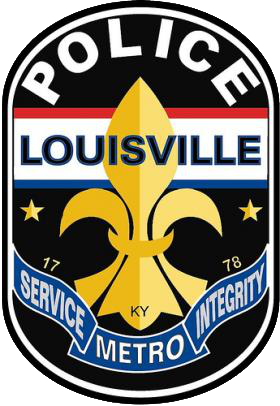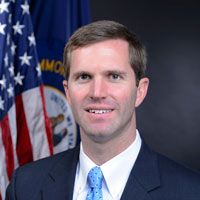 Louisville Metro Animal Services (LMAS) is reminding residents that a new Louisville ordinance that took effect Tuesday requires the name of any person convicted of animal abuse in Jefferson County to be placed on an Animal Abuse Registry.
Louisville Metro Animal Services (LMAS) is reminding residents that a new Louisville ordinance that took effect Tuesday requires the name of any person convicted of animal abuse in Jefferson County to be placed on an Animal Abuse Registry.
Metro Council District 8 Representative Brandon Coan sponsored the ordinance, which was approved by the full Council in April.
“Animal abuse registries are growing across the country as an important law enforcement tool to not only prevent animal cruelty, but also identify individuals who may pose a domestic violence or other serious threat to the public at large,” said Coan.
LMAS will notify convicted offenders of the requirement to self-register and pay an annual registration fee of $100. Offenders will remain on the registry for a period of two years. Pet stores, shelters and animal organizations that offer pet adoptions and sales are required to check the registry before allowing a person to adopt or purchase a pet.
“In the early months and years of the registry, a primary focus will be to minimize the burden on small businesses and nonprofits in terms of compliance,” said Coan. “We intend to work closely with stakeholders until the system works well for everyone.”
Kentucky consistently ranks among the worst states for animal rights, though Louisville’s animal ordinance goes beyond state statutes. The creation of an animal abuse registry is designed as another tool to keep animals from those who would abuse them.
Under the ordinance, LMAS will maintain the Animal Abuse Registry, updating it at least once every 30 days. Anyone convicted of animal abuse outside of Jefferson County must register within 10 days of establishing residency. Failure to register or comply with the registry could result in a maximum 60 days in jail and a $1,000 fine. To view the Animal Abuse Registry and read the ordinance, visit www.louisvilleky.gov/animalservices.

Photo: Louisville Metro Council
For a second time in less than a week, Solid Waste Management Services Enforcement Officers, with help from a private citizen, have located and impounded a vehicle caught on camera illegally dumping. It’s the 12th impounded vehicle of the year.
“I want to thank the citizens who assisted SWMS Officers in locating this vehicle. It’s assistance like this from the public that are making sure are neighborhoods are not being turned into someone’s personal dumping ground,” said Councilwoman Nicole George (D-21). “The message has always been clear, if you illegally dump in our neighborhoods, it will be costly when you get caught.”
According to SWMS Enforcement, on August 10th, a citizen’s private security system captured a white Ford F-150 being used to dump a couch in the Beechmont Neighborhood. The SWMS Enforcement Team was able to locate the vehicle today in the 100 block of East Adair.
In total, the illegal dumper received a citation with fines and fees totaling $750. Also, they will have to pay approximately $250 for impound and storage fees.
This is the second impounded vehicle for the week. On Wednesday, a Ford F150 was impounded in the 3500 Block of River Park Drive as a result of illegal dumping that had occurred in September in District 6.
Impounding any vehicle involved in illegal dumping was approved by the Louisville Metro Council when it amended the local ordinance on illegal dumping. The changes to the ordinance also called for fines and storage fees paid the dumper when the impounded vehicle was found.

Photo: Louisville Metro Council
President David James is praising the enforcement effort of Solid Waste Management Services officers as the 11th vehicle of the year is impounded for illegal dumping in District 6.
“It is important that everyone know these officers are serious about catching any illegal dumping in our city,” said the President. “We, on the Metro Council, continue to send out the message that if you dump illegally anywhere in our districts or neighborhoods, you will be caught, and it will be costly.”
This latest impoundment occurred after SWMS Enforcement located and impounded this Ford F-150. It was witnessed on surveillance cameras being used to dump a mattress and construction debris in District 6 on September 21st and September 28th.
According to SWMS, Enforcement Officers were able to track down the vehicle in the 3500 block of River Park Dr. The illegal dumper admitted that he was working on a property and was given money to dispose of the material properly but chose instead to dump it behind a vacant property.
As a result, the illegal dumper received a citation with a fine of $1000. There is also a fine of approximately $250 for impound and storage fees.

Credit: Louisville Metro Police
Since the beginning of 2019, Louisville Metro Police are seeing a noticeable increase in both auto theft and theft from cars in the Central Business District of Downtown.
As a result, the “Lock, Take, and Hide” campaign is now underway to remind drivers and passengers of the simple ways in which to prevent theft involving automobiles.
“There are times when we are in a hurry and we just don’t think when we get out of a car. Every time, we forget to lock the door or leave things in plain sight, we are offering an invitation to thieves to steal,” says Councilwoman Barbara Sexton Smith (D-4). “There are simple common-sense things we can do to curb this trend. I hope “Lock, Take and Hide” will be practical reminder of how to stop theft in its tracks.”
The Councilwoman and officers of the LMPD’s First Division announced the campaign today. One hundred signs are being posted around the downtown area with the simple reminder of: Lock your car, Take your keys and Hide your belongings.
New statistics from the First Division show auto theft and theft of things taken from an auto have increased over last year in the Central Business District:
Auto Theft
- YTD 2018 – 228
- YTD 2019 – 264
- 15.8 % increase
Theft from Auto
- YTD 2018 – 361
- YTD 2019 – 498
- 38 % increase
“The 1st Division is very excited to partner with Councilwoman Barbara Sexton-Smith in the “Lock, Take and Hide” campaign. Unfortunately, we have seen an increase in stolen automobiles and theft from autos. The officers of the 1st Division are working very hard, but we need the community’s help. Many of these crimes could have been prevented,” said Major Andrew McClinton of LMPD. “We all need to step up and “Lock, Take and Hide” our valuables. Working together, we can significantly reduce these crimes. We appreciate all the support and look forward to making this campaign a success”
“Together, we can bring an end to this trend,” said Sexton Smith.
If you see any suspicious activity around and auto, then call 574-LMPD.
Trained advocates will provide support to victims at every KSP post in the Commonwealth
 Gov. Matt Bevin today joined with Kentucky State Police, the Justice and Public Safety Cabinet, and the federal Office of Justice Programs, within the Department of Justice, to announce a new initiative that will provide trained advocates at every KSP post to support and assist victims of crime.
Gov. Matt Bevin today joined with Kentucky State Police, the Justice and Public Safety Cabinet, and the federal Office of Justice Programs, within the Department of Justice, to announce a new initiative that will provide trained advocates at every KSP post to support and assist victims of crime.
KSP is among the first state police agencies to implement this program on a statewide basis.
The program, called Victim Advocate Support Services (VASS), is launching this fall with a dual purpose. Advocates will administer care to crime victims – or those involved in traumatic events – connecting them with immediate resources, such as mental health services, crisis intervention or legal support. These skilled professionals will also serve as liaisons between law enforcement and the victim, simultaneously helping victims navigate the system while allowing detectives to focus more efficiently on the details of the case.
“I am proud of KSP for leading the charge to ensure that every single state police post in the Commonwealth has a trained advocate that can provide compassionate care and essential resources to victims of crime,” said Gov. Bevin. “The Victim Advocate Support Service program will ensure that victims are immediately connected with trained professionals who will be available during every step of the process. We are grateful to the federal Department of Justice for partnering with us on this important program, and I am confident that this initiative will allow us to better serve and support crime victims who need it most.”
One advocate will be assigned to each of KSP’s 16 posts throughout the state. They will work with community partners to provide fair, compassionate and sensitive treatment of victims, families and witnesses – from the investigative stage of a crime through a follow-up period after the case has been adjudicated. Providing these services in the first hours following a crime is not only vital to healing, it also helps victims secure available compensation funds for out-of-pocket expenses.
KSP Commissioner Rick Sanders said the VASS program will fill a void in the system when it comes to victim outreach and ensure that victims are provided with immediate assistance and resources.
“Last year, our agency opened more than 8,000 criminal cases involving more than 10,000 victims,” Commissioner Sanders said. “Many of these victims have experienced severe trauma and need support from a trained advocate. Although, our troopers are compassionate, they must use their training to immediately investigate the crime or assist with a critical incident as it is unfolding, and having a trained advocate at each post will allow victims to receive immediate support.”
The VASS program is funded through the federal Department of Justice’s Victims of Crime Advocacy (VOCA) grant program. Last month, the Grants Management Branch in the Kentucky Justice and Public Safety Cabinet, which administers VOCA funds in Kentucky, awarded KSP $2.5 million for the program. KSP is providing a $632,000 match.
In addition to the advocates, the grant will fund vehicles for each position and a program director. It also includes funds for staff to attend training in trauma-centered care, compassion fatigue, and victim advocacy. KSP will also work with community-based agencies to develop a resource guide for each post’s service area.
Kentucky Justice Secretary John Tilley praised KSP for the innovative approach to helping victims at a time when police are taking on more complex roles.
“We want to empower victims right from the start,” Secretary Tilley said. “Enduring a traumatic event is overwhelming enough without having to worry about navigating the complexities of the criminal justice system. We have a duty to uphold the rights of victims while also helping them navigate the labyrinth of information, resources and procedures. This will also help KSP troopers and detectives focus on what they do best – solving crimes and protecting communities.”
Katharine T. Sullivan, Principal Deputy Assistant Attorney General for the Justice Department’s Office of Justice Programs, praised the initiative.
“The Department of Justice is excited about Kentucky’s new program and always happy to make these resources available to support crime victims at the moment they need it the most,” Sullivan said. “I’m confident that this program will serve as a model for other states, and I’m hopeful that it will set a new standard for law enforcement agencies everywhere as they seek to do more to respond to the needs of victims.”
KSP has begun interviewing and hiring victim advocates and will begin offering services as soon as the hiring process is complete.
 Jefferson County Attorney Mike O’Connell announced a new policy objective Wednesday to generally not prosecute possession of marijuana (“POM”) cases involving one ounce of marijuana or less when the possession charge is the only charge or the most serious charge against the individual.
Jefferson County Attorney Mike O’Connell announced a new policy objective Wednesday to generally not prosecute possession of marijuana (“POM”) cases involving one ounce of marijuana or less when the possession charge is the only charge or the most serious charge against the individual.
“A prosecutor has the responsibility of a minister of justice and not simply that of an advocate,” O’Connell said, quoting the commentary on Rule 3.8 from The American Bar Association’s Model Rules of Professional Conduct and, its counterpart, the Kentucky Bar Association’s Rules of Professional Conduct. “As your County Attorney, I take that admonition seriously and that is why I must now act in regard to possession of marijuana cases.”
O’Connell cited the need for fair and equal enforcement of the laws and finding the best use of his office’s limited resources in exercising his discretion as a prosecutor.
“We will now devote even more time and attention to the serious, and potentially deadly, crimes involving guns, domestic violence and DUI,” O’Connell said.
A 2013 study found that black and white Americans use marijuana at the same rates, but black people are nearly four times more likely to be arrested for POM than whites. Earlier this year, The Courier Journal analyzed Louisville Metro Police Department data from 2010 to 2017 and determined that similar or worse disparities occurred locally when marijuana was the most serious charge cited.
“Its origin is likely not intentional or malicious, but that does not change the end result,” O’Connell said. “For me to truly be a minister of justice, I cannot sit idly by when communities of color are treated differently.”
O’Connell also highlighted KRS 218A.276, a state statute last amended in 2012, that allows an individual to have POM charges completely voided from their record—at potential no cost to the defendant—after 60 days.
“No one should see their future diminished over a charge like this, especially when there are available legal tools to wipe this from a person’s criminal history,” O’Connell said.
O’Connell researched different approaches that communities across the nation have taken with POM cases and developed his plan in recent months. In addition to charges involving possession of marijuana (KRS 218A.1422), the Jefferson County Attorney’s Office will also no longer prosecute illegal possession of drug paraphernalia (KRS 218A.500) in the following limited circumstance: when the item possessed is clearly only used for the inhalation/ingestion of marijuana.
The new objective does not apply to persons under the age of 21, and does not include cases involving any indicators of trafficking in marijuana; cultivating marijuana; driving while under the influence of marijuana; public display, use, or consumption of marijuana; or public intoxication as a result of marijuana.
Joining O’Connell for the announcement were leaders from the Kentucky’s social and racial justice community, including Raoul Cunningham of the NAACP, Sadiqa Reynolds of the Louisville Urban League, Michael Aldridge of the ACLU of Kentucky and Reverend Charles Elliott Jr. of King Solomon Missionary Baptist Church.
“These disparities and effects are not the problem of any one part of government, any one profession or any one people,” O’Connell said. “This is a problem that belongs to us all. In my role as Jefferson County Attorney, I can do more to develop reforms that avoid needlessly bringing people into the justice system. I choose to act.”
 Attorney General Andy Beshear announced today that his office is doubling down on recent, successful efforts with phone companies to stop scam calls by urging the Federal Communications Commission (FCC) to compel more phone companies to join the fight.
Attorney General Andy Beshear announced today that his office is doubling down on recent, successful efforts with phone companies to stop scam calls by urging the Federal Communications Commission (FCC) to compel more phone companies to join the fight.
Beshear joined a coalition of 51 attorneys general in sending comments to the FCC in support of requiring voice service providers to implement a caller ID authentication framework if they fail to implement the framework voluntarily by the end of 2019 and to provide free, default call-blocking programs to customers.
The comments follow a breakthrough announcement from Beshear, a bipartisan public-private coalition of 51 attorneys general and 12 phone companies last week who reached an agreement to work together to stop illegal and invasive scam calls.
“Working to stop illegal scam calls is a top priority for my office,” Beshear said. “To make sure every Kentuckian is protected, I want to see every phone service provider offer free call-blocking services and implement technology that can block scam calls. If companies won’t voluntarily provide these crucial services, they should be required to.”
In their comments to the FCC, the coalition of attorneys general states that phone service providers should be required to:
- Offer free, automatic call-blocking services to all customers. The call-blocking services should be based on reasonable analytics and should not block important calls, including emergency alerts or automated calls that customers have signed up for, like medical reminders or school notifications.
- Monitor network traffic to identify patterns consistent with scam calls and take action to cut off the calls or notify law enforcement.
- Implement caller ID call authentication technology, which will help ensure that telephone calls are originating from secure, verified numbers, not spoofed sources. The coalition supports the FCC’s proposal to take regulatory action against telecom companies that do not comply with this technology.
- Develop caller ID authentication to prevent robocalls to landline telephones. This is particularly urgent because the people defrauded by scam calls are often elderly Kentuckians who primarily use landline technology.
Attorneys general from all 50 states and Washington, D.C. have joined Beshear in signing these comments.
Since taking office, Beshear has worked on the state and federal level to encourage the implementation of new solutions to help stop scam calls.
Last year, Beshear urged the FCC to adopt rules that allow phone companies to use new technology to block illegal robocalls. In June, the FCC voted unanimously to let phone companies join the fight. Before this change, companies were required by law to complete known scam calls and now they can legally block them before they ever reach your phone.
Beshear has long supported the FCC’s actions to encourage and require service providers to implement a caller ID authentication framework. Some carriers are already helping by identifying a call as “scam likely” or “scam call.”
Earlier this year, Beshear’s office was also part of a national sweep with the Federal Trade Commission and other states that cracked down on nearly 100 illegal call operations. These operations were responsible for more than a billion illegal scam calls.
Kentuckians wanting to block scam calls to their phone should contact their phone carrier or internet service provider to ask about call-blocking technology, which can help stop many scam calls.
Kentuckians can avoid falling victim to scams by signing up to receive new and trending scam alerts from the Office of the Attorney General by texting the words KYOAG SCAM to GOV-311 or visiting ag.ky.gov/scams.
Beshear said Kentuckians should report scams to his office via an online complaint form or by calling 888-432-9257.
 Weather
Weather Traffic
Traffic @LouisvilleDispatch
@LouisvilleDispatch @LouisvilleDisp
@LouisvilleDisp Subscribe
Subscribe